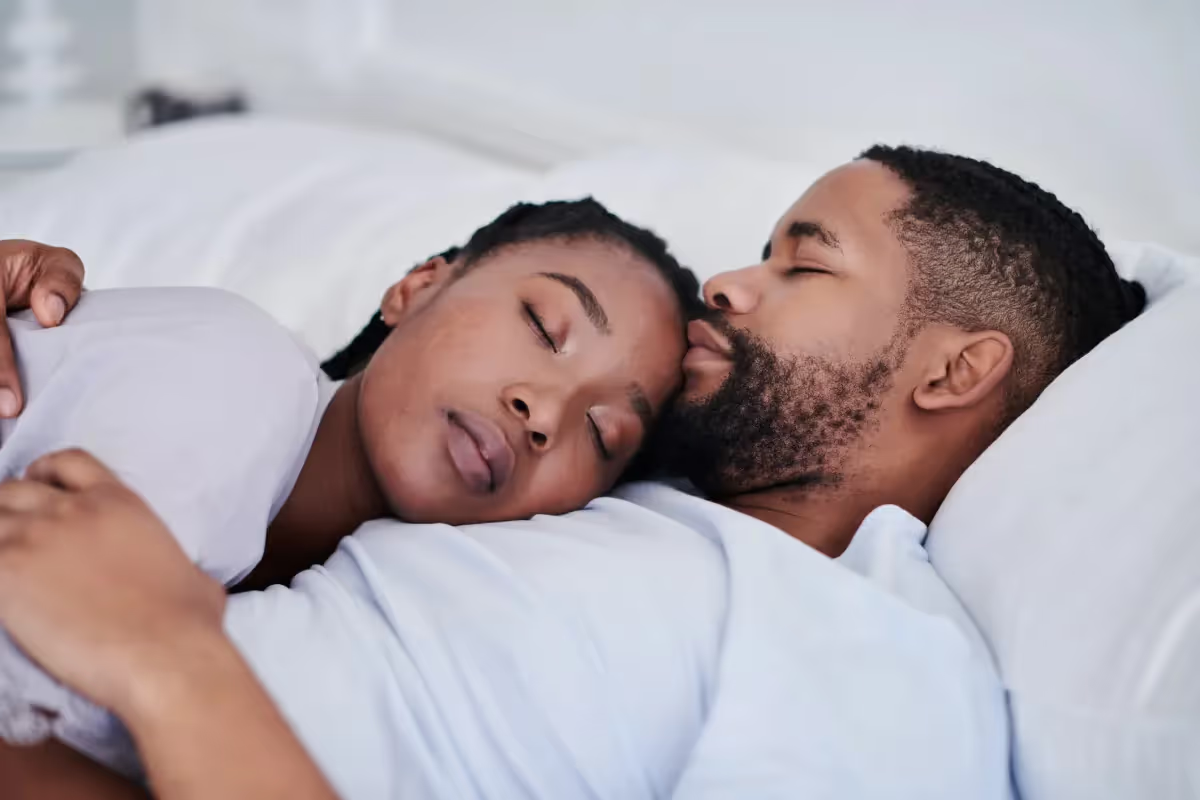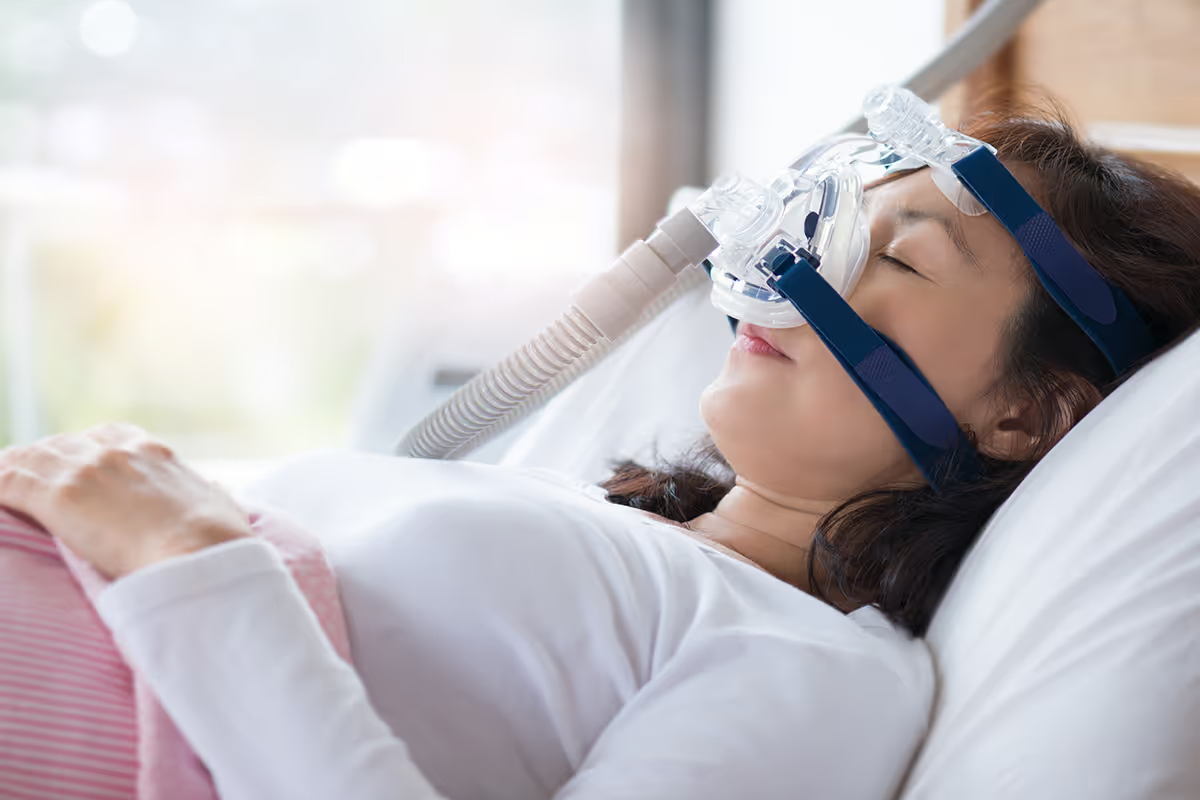Sleep Apnoea without Snoring: An Overview
Many people know that snoring and sleep apnoea are commonly linked. But what about those lucky silent sleepers? Can they have sleep apnoea without snoring? The simple answer is, “Yes”, but they likely have central sleep apnoea, not obstructive sleep apnoea. Certain types of heart problems like heart failure; use of opiate medications or drugs; and certain neurological problems, can cause you to stop breathing while asleep. There is no snoring because you are not trying to breathe, it’s just that your brain is not sending the message to breathe. Central Sleep Apnoea is not associated with snoring and is rare.
You’re a Snorer. Welcome to the Club.
Snoring is common. 25% of women and 45% of men report snoring. As you age and get heavier the snoring becomes worse. Basically, your sagging tongue and soft palate, a.k.a. soft tissues, narrow your airway and vibrate like a trumpet when you sleep, often releasing sharp elbows by your bed partner. Not all snorers have obstructive sleep apnoea, a condition caused by a blockage in the airway. If you’re snoring, listen to your bed partner. Get tested for Sleep Apnoea.
At BlueSleep testing is fast, easy, and covered by health insurance. If you’re a snorer, but don’t have sleep apnoea and want to stop your snoring, then a custom oral device will help, but insurance won’t pay for the treatment because it does not consider snoring alone (without Obstructive Sleep Apnoea) a medical problem. Luckily, BlueSleep has discounted self-pay pricing so you can sleep in peace.
You have Obstructive Sleep Apnoea
When your soft tissues relax and actually block your airway, you’re likely snoring AND suffering from obstructive sleep apnoea. You may even catch yourself waking up and gasping for air. No air means decreased oxygen in the blood. This also causes disruption to your sleep cycle and leads to constant daytime sleepiness, irritability, and premature death caused by diseases like high blood pressure. Obstructive Sleep Apnoea is common, but less than 20% seek treatment. Many don’t understand the dangerous link between snoring associated with sleep apnoea and debilitating diseases. Get tested, fast.
The first thing you need to do is to book an appointment with a BlueSleep sleep specialist who will order a home sleep test and then provide a treatment like an oral appliance or a CPAP, depending on the severity of your sleep apnoea and medical history. Medical insurance will pay for the test and treatment, if you see a sleep specialist. Insurance will pay for treatment, only if you test positive for sleep apnoea. If you don’t have insurance, BlueSleep offers discounted self-pay options.
You’re a Quiet Sleeper. But, not Breathing Regularly at Night.
If you’re not snoring, but having intermittent breathing while sleeping, you may have a condition called Central Sleep Apnoea (CSA). While Obstructive Sleep Apnoea (OSA) is an air blockage problem, Central Sleep Apnoea is a brain problem. Simply put, your brain is not sending the right signals to your chest muscles to breathe.
The condition is rare, affecting less than 1% of the population and mostly people over 65 years old with heart problems, kidney failure, or those taking opioids or in high altitude conditions. Note that people can have both OSA and CSA at the same time, appropriately called Mixed Sleep Apnoea, and 5%-15% of people using a CPAP for OSA may get CSA, also known as Treatment-emergent Apnoea. This happens because the CPAP works so well, that the body takes a pause in breathing. This usually resolves when the settings on the CPAP are properly adjusted.
In any case, if you’re waking up often; having headaches; and/or suffering from constant daytime sleepiness, make an appointment with a BlueSleep specialist and start with a simple home sleep test.
References
Mechanisms and Clinical Consequences of Untreated Central Sleep Apnoea in Heart Failure
CSA is now recognized as an important, independent risk factor for worsening HF and reduced survival in patients with HF. Unfortunately, CSA is often not identified by clinicians, because its subtle findings often become lost in the signs and symptoms that typically accompany HF. A high index of suspicion for CSA should exist when an HF patient presents with the clinical features or risk factors of CSA, and in these patients, an overnight sleep study should be performed.
For patients with central sleep apnoea, a multidisciplinary approach is important to the patient's overall care. This may include a cardiologist in patients with heart failure to appropriately optimize treatment. The role of respiratory therapists and nurses is important in educating patients on proper techniques to use various machines and masks for non-invasive ventilation, which is a cornerstone of management in patients with central sleep apnoea. Pharmacists form an integral component in evaluating and identifying any medications that may contribute to the disease progression. Overall, a multidisciplinary approach is essential in managing patients with central sleep apnoea.
Does Snoring Intensity Correlate with the Severity of Obstructive Sleep Apnoea?
We observed a significant positive correlation between the severity of the OSA and snoring intensity. Previously published data on this association were based upon self-report or family member report of snoring. The current study is the first to use an objective measurement of snoring intensity in a large group of patients to assess the relationship between OSA and snoring severity.
The prevalence of OSA in snorers presenting with various chief complaints: a pilot study
Based on this study, of 273 patients who snored, the incidence of OSA is high. Ninety-six percent of the patients suffered with mild to severe sleep apnoea. This malady, which can be very serious and degenerating, could be much more prevalent than previously believed. Additional research is needed to verify these figures.













